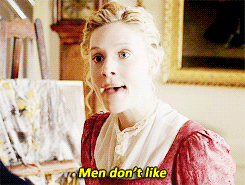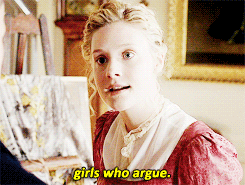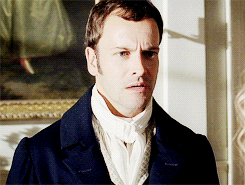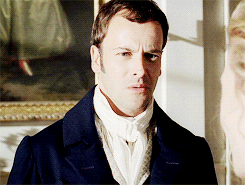MicroFlashFic On Twitter Did A Lovely Series For Holy Week And I Wanted Them Preserved In One Place.


























MicroFlashFic on Twitter did a lovely series for Holy Week and I wanted them preserved in one place.
All tweets described/text copied into the alt text for each screenshot.
More Posts from Elanorpevensie and Others
Something I wish we got a little more of was Coulson comforting/encouraging Fitz??? That dynamic was played out a little bit, yes, but I feel like there's something there.
The way how Coulson would clasp Fitz shoulder as he was on the verge of tears, and in s4 when Coulson laid his forehead on Fitz' head telling him it was gonna be alright, and how he held Fitz' forearms as he was spiralling after coming out of the Framework....
Do you think Coulson was imitating what his father did for him when he was little? Comfort through physicality? I'd like to think so...
But also, Coulson has to know about Fitz' dad and how he left. He's gotta know there's a sort of hurt there. Maybe he feels the need to step in a little bit and show him what a real father is like? That it's okay to not only break, but to also be gentle.
I really really really need prayer, if anyone could pray that would be wonderful
This reminds me of my creative writing professor's reaction. One of my friends brought a D&D book to class. This was at a Christian school where D&D was pretty popular, so he teased her about it being satanic and she teased him right back. Later while we were working on peer feedback, our professor asked if he could look at the book since he'd never really seen anything D&D related.
Several minutes later, he asked, "Why was everyone panicking about this? It's just imagination."
My friend told him yeah, it was just imagination and math rocks, and I think we actually changed his mind about it.

Found that over at mastodon
Edit: link to original post: https://mastodon.social/@senatormeow/100908678269940898
[Image ID: a Toot from User "Senator Meow": "when I first ran D&D, my grandmother, who had bought fully into the IT'S SATANISM hype, insisted on sitting and watching the first session. about an hour in, she threw her hands up and yelled 'THIS IS JUST MATH' and stormed off"/END ID]
sophie hatter finally lives out every customer service worker's dream of retaliating to a mean customer AND telling them they suck and then when she thinks "wow standing up for myself was really liberating" she gets a curse put on her literally five minutes later
Hamiathes's Gift Exchange 2025: Schedule Announcement!
The schedule is here, and well ahead of time this year! We're kicking off in about three months, and the schedule will be relatively close to last year's. This exchange is open to anyone with an AO3 account who wants to write a fic or make a piece of QT art. For more details on length, size, and logistics of the exchange, check out the FAQ linked at the bottom of this post.
2025 Schedule
Character/relationship/worldbuilding nominations: Thursday, July 17 - Thursday, July 24
Signups: Friday, July 25 - Sunday, August 3
Assignments sent out: Tuesday, August 5
Fanworks due: Friday, September 12
Fanworks revealed: Friday, September 18
Artists/authors revealed: Friday, September 26
All deadlines are at 8pm EDT
Note: If you don't have an AO3 account, you can request an invite here. There is currently a 3 week waiting list to get an invite, so please make sure you request one soon if you're considering participating!
If you have any questions about how the exchange works you can find last year's FAQ here. Check out past HGE works here! If you want a reminder when signups open, dm me!
Second Age De-Aging AU
(Title is a work in progress.)
The workshop looked as if it had recently contained a small to medium sized explosion.
That concerned Gil-Galad a great deal less than what had been left in the wake of that explosion.
Namely, a very small peredhel currently perching catlike on one of the few sets of shelves still standing and who was hurling every throwable object in reach at a wincingly placating Annatar.
The thrown objects were accompanied by what he first interpreted as a yowl, which was really only reinforcing the cat impression, right up until he belatedly realized it was actually a wail, at which point he had to remind himself that it was not at all appropriate for him to throw things at an emissary of a Valar.
Even if he was almost entirely certain that, despite the seeming impossibility of the thing, the very small peredhel in question was Elrond.
Still. He was king. Kings did not throw things. Kings very calmly and not at all frantically demanded, “What happened?”
Elrond’s wail at last became intelligible words. “He lied!”
Gil-Galad switched his gaze to Annatar.
The maia was holding his hands out in a conciliatory fashion. “Dear Celebrimbor and I have been working on some things to better help Men preserve their minds as they age. Perfectly safe for both elves and Men, I assure you. Lord Elrond expressed a natural interest. I had no idea that with his . . . unique nature . . . it would react this way to his touch.”
“It exploded,” Gil-Galad said flatly.
“Not at all!” Annatar assured him. “It merely . . . affected his fea in an unexpected way. And it seems his hroa followed. At which point, he was unsurprisingly distressed . . . “
Gil-Galad reconsidered the explosion in the context of a highly frightened descendant of Luthien.
“ . . . and I am afraid that the resulting . . . incident . . . led to it . . . ”
Gil-Galad redirected his attention to the scorch marks on the workbench as Annatar very visibly searched for a word that was not “exploding.”
“And at which point in this process did you lie to him?” he asked pleasantly.
Annatar winced even more deeply. “He asked where his brother was,” he said apologetically.
Gil-Galad went very, very still.
He remembered, very clearly, just how closely the twins had stuck to each other in the early days of their being sent to Balar.
He remembered, very clearly, the grief on Elrond’s face when Elros had sailed.
And he remembered, very clearly, the grief that even still had not vanished when the bond between them at last had fully snapped.
“I’m afraid in my distraction that I said that was an interesting theological question.”
And Elrond, even at this age, had put the pieces together between that statement and the aching void Gil-Galad was sure he still felt in his soul when he reached for his brother.
Maiar, he had to remind himself very firmly, did not view death as Men or elves did. Annatar had not intended his statement to lead to . . . this.
This was even now changing. Whatever expression was on Gil-Galad’s face must have convinced Elrond that it was not a lie after all because there were no more objects being thrown from the shelf.
Unless, of course, you counted Elrond himself, who was slowly but surely turning the color of bleached bone and sliding inexorably off the shelf.
Gil-Galad sprang for him, catching the far too light body just in time.
“Fix this,” he ordered Annatar, clutching Elrond to his chest. Elrond had gone deathly quiet, and he had to move his hand on Elrond’s back until he could feel the heartbeat through the ribs just to be sure it was still pumping.
It was not the correct way to talk to an emissary of the Valar.
Gil-Galad did not have enough left in him to care.
. . .
Several hours later, he still had not determined what precise age this version of Elrond was.
This failure was mainly because of what else he had discovered. Namely, that this version of Elrond did not want to talk.
Or eat. Or sleep. Or do anything, really, but curl up into the smallest ball he could manage and block out the rest of the world.
He did not object to Gil-Galad talking. Or singing. Or pacing.
He did object, after those first few moments, to being touched. Gil-Galad had set him down in the window seat of his borrowed office the moment he could. As far as he could tell, Elrond hadn’t moved since.
He also objected to Annatar’s entrance. At least, that’s what Gil-Galad assumed the infinitesimal tensing of his shoulders meant. It was tempting to drag Annatar into the hallway to just meet there, but that would mean leaving Elrond alone, and Gil-Galad felt . . . uneasy about that.
(The window was narrow. The window was covered with beautifully stained glass that some of the artisans here had apparently been experimenting with. The window was not that high off the ground, really, as elves usually considered things.)
(On the other hand: Elwing. Maedhros.)
(Even if Elrond currently remembered only one of those formative experiences, Gil-Galad was not in the mood to take any risks.)
“You have a solution?”
Annatar shook his head mournfully. “I have a better idea of what went wrong,” he corrected. “A solution will likely take weeks. Longer, perhaps. It is a good thing you accompanied Lord Elrond on this visit; I am not sure a messenger could have found Celebrimbor in time.”
Gil-Galad paused in his pacing. “In time,” he repeated.
“Since the dwarves have been so reluctant to share the location of their sacred places to others in the past . . . ?” Annatar’s voice hinted gently, embarrassed to repeat what Gil-Galad already knew.
He knew full well why a message might take a while to find Celebrimbor; the complications of Celebrimbor’s expedition with the dwarves of Khazad-dum falling, he was assured unavoidably, in tax year, coinciding with a few mix-ups in delegation and communication . . .
But “in time.”
Were the effects going to get worse or - ?
“He’s a child,” Annatar said, very slowly, in response to the confusion Gil-Galad feared was on his face. “His fea will need to be nurtured. Preferably by a relative.”
“That’s just superstition,” he protested.
Annatar looked at him very oddly.
“ . . . I’ve heard,” Gil-Galad tacked on, like an elf who had certainly had two very present and alive elvish parents to nurture him throughout his childhood, and not at all like a feral former fugitive who had been raised by human bandits in the woods.
“From whom?” Annatar asked incredulously.
“Elrond,” he said after a slightly too long pause. He flicked his eyes hopefully to the child on the window seat; Elrond hadn’t so much as twitched. “He survived the first time around, didn’t he?”
“Yes,” Annatar agreed after an equally baffled pause. “Forgive me for any indelicacy here, but you do realize that no matter how forsworn the sons of Feanor may be, they do still count as relatives . . . ?”
Right.
And Gil-Galad . . . did not.
Which shouldn’t matter, he told himself firmly. He had survived, hadn’t he? And he was perfectly fine.
Perfectly alive, at any rate. And any of his various moral shortcomings were just down to his personal failings. And the more practical side of his upbringing.
Definitely.
His eyes flicked worriedly to the very pale, very still, very small figure in the corner.
“I don’t suppose you have any advice in that direction?”
(Annatar did, as it turned out.)
(It did not turn out to be enough.)
. . .
He had felt guilty before about lying about his place in the Finwean family tree.
None of it came close to what he felt watching Elrond slowly wasting away.
He had lied and cheated his way to this point, and if this point got Elrond killed -
No.
He could stay here and pray Annatar finished fixing the device before his own deficiencies got Elrond killed.
Or he could take his company and ride hard for Galadriel.
Probably that would be the end of his masquerade; probably all that sharp edged suspicion in her eyes would turn to certainty and that would be that. Definitely of his career and possibly of his life.
But Galadriel was Elrond’s cousin; Galadriel was a mother. Galadriel would know what to do. Elrond would be alright.
(“I’m sure this isn’t necessary,” Annatar said as Gil-Galad’s guards prepared the horses. Elrond had let himself be hauled like a terrifyingly heartbroken statue onto one of them. “You must be a closer relative to him the sons of Feanor were; surely with a few more days of trying to bond with him - ”)
(He considered just blurting it out. ‘No, actually, he might be more closely related to you, considering that maiar blood.’ ‘No, actually, I wouldn’t know Finwe from a dead toad on the ground.’)
(‘No, actually, there’s something terribly wrong with me. Possible more wrong than there was with thrice kin slaying Feanorians.’)
(He smiled, instead, with a closed mouth. “I’m really not father material,” he said. “Lady Galadriel, I’m sure, will prove as ferociously competent as always in my stead.”)
(Annatar did not argue with this.)
. . .
(There weren’t any Feanorian guards with them. Gil-Galad had insisted after what had happened the last time he had let Elrond bring Farande to Eregion. He wasn’t sure if that was for the better or the worse now; if Elrond would be relieved to have a face he recognized or terrified due to how he recognized it.)
(At least that might be better than the terrifyingly hollow look that was currently in his eyes.)
(But it would be better soon, he assured Elrond. They would reach his cousin Galadriel soon, and wouldn’t that be nice?)
(Elrond remained curled in the tightest huddle he could manage by the campfire. He no longer bothered to wince when he was touched.)
. . .
Galadriel met them at the edge of the forest she had made her new home in, so at least the messengers he had sent had managed to find her. She gave her usual shallow courtesies to her nominal king, but her eyes were locked on Elrond.
Now, at last, was the moment to confess.
Gil-Galad slid from his horse. Carefully, oh, so carefully, he helped Elrond down.
His ribs had been less prominent when the Feanorians had sent him to Balar.
“I couldn’t help him,” he said, his quiet voice sounding like the crack of doom through the silence.
“Of course you could not,” Galadriel said.
Of course.
“His fea was orphaned once; it will not accept a replacement again. Not - ” And here, in the face of Elros, even she faltered. “Not under these conditions.”
A different, more dreadful doom wrapped around his heart.
If Celebrimbor had been deemed too difficult to find -
He noticed, dully, that Galadriel had come alone.
And that despite wearing a fine woven cloak against the snap of the late autumn chill she was carrying another one.
And a flute.
“Lady Galadriel,” he said slowly.
“Do you want to help him or not?” she snapped. She paused. “My king.”
“Oh, I want the help,” he said instantly, fervently. “I’ll welcome him into Lindon with open arms if he can do this.”
“Well,” she sniffed. “I don’t know that you need to promise that.”
“Especially since it seems you came well prepared with bribes yourself,” he said, nodding with considerable relief to the goods in her hands.
She looked down at them. “ . . . Yes,” she said. “Bribes.”
Elizabeth Bennet: the first impression I had of Mr Darcy prevented me from realising how wrong I was about him for so long! Hah, I thought myself clever, but I am just another fool!
Anne Shirley: how long is “so long”, exactly?
Elizabeth Bennet: months!
Anne Shirley, who spent years holding a grudge before realising how wrong she was about Gilbert: nah, I think you are good!




Headcanon: Bilbo eventually evolves into something of a Santa Claus figure to Hobbits.
“It became a fireside-story for young hobbits; and eventually Mad Baggins, who used to vanish with a bang and a flash and reappear with bags of jewels and gold, became a favourite character of legend and lived on long after all the true events were forgotten.”
Mad Baggins was remembered for randomly appearing with money, but Bilbo Baggins was well known for being extremely generous with his, especially to people who weren’t too well off. Frodo, of course, is just as free with his fortune as Bilbo was, as is Sam when he comes into it, and even Lobelia with what she has left after Saruman’s occupation, and as “Baggins” begins to decline as a name, it becomes somewhat synonymous with charity, and this gets mixed up in the legends about Bilbo’s funny adventures and ridiculous stories until everything’s too tied together to separate.
Bilbo would give out lots of gifts in the winter, to ensure everyone had warm clothes and a roof that didn’t leak, which is how he eventually became tied to Yuletide, and the legends start out as, “Mad Baggins will share his fortune with those who truly need it,” and eventually evolves into, “Good little Hobbitlings might get gifts from Mad Baggins,” and there are all sorts of pageantry and games, like someone will dress up as Mad Baggins and use Hobbit stealth magic and sleight of hand to “appear” in various places, set off a firecracker, and then run for it, and anyone who can catch him can have some candy out of his bag.
Long after Hobbits stop having dealings with Dwarves, and perhaps even after they stop believing in them altogether, they become mystical figures attached to the Mad Baggins legend, coming and going as they please and answering to nobody; anybody who catches a Dwarf may get cursed, but they also may win a treasure off of them like nothing else (and the curses, of course, are the sorts of dreadful things Hobbits can think of; thin foot-hair for a season, or never finding something until you’re looking for something else).
You know those creepy ornate woodland Santas, or like, the horrible Victorian illustrations? They have those too: Mad Baggins (a bright red nose and curly golden hair around his ears, bald on the top of his head and wearing boots of all things) accompanied by thirteen dwarves and a troop of ponies, passing out gifts and then disappearing with more than Hobbit skill. But the classic image of Mad Baggins, the one that springs to mind when children think of him, and appears in whatever their version of The Night Before Christmas is, garbs himself in green and silver and carries a sword (quite an outlandish thing among Hobbits!), and laughs often, being a great lover of song and good food and drink and practical jokes.
And if sometimes the perfect gift does appear out of thin air with no reasonable expectation, well. They say he learned from wizards too, and even though all things are diminished in the latter days, nobody ever said they were going to dwindle to nothing, did they? And it sits well with certain entities that at the end of the day, this is what’s left of a certain Dark Lord’s legacy; a legend borrowing the incidental property of his magic talisman to grant invisibility to bring gifts to children.
-
 luniceity liked this · 1 month ago
luniceity liked this · 1 month ago -
 rivenantiqnerd reblogged this · 1 month ago
rivenantiqnerd reblogged this · 1 month ago -
 rivenantiqnerd liked this · 1 month ago
rivenantiqnerd liked this · 1 month ago -
 horizons-queerstake-blog reblogged this · 1 month ago
horizons-queerstake-blog reblogged this · 1 month ago -
 horizon-penblade liked this · 1 month ago
horizon-penblade liked this · 1 month ago -
 asclepias-lavendula-nyctanthes reblogged this · 1 month ago
asclepias-lavendula-nyctanthes reblogged this · 1 month ago -
 milkygastrobones liked this · 1 month ago
milkygastrobones liked this · 1 month ago -
 green-great-dragon reblogged this · 1 month ago
green-great-dragon reblogged this · 1 month ago -
 edelweiss-of-christ liked this · 1 month ago
edelweiss-of-christ liked this · 1 month ago -
 aquamarie-yaps liked this · 1 month ago
aquamarie-yaps liked this · 1 month ago -
 butterflies-and-bumble-bees reblogged this · 1 month ago
butterflies-and-bumble-bees reblogged this · 1 month ago -
 angelellipsis liked this · 1 month ago
angelellipsis liked this · 1 month ago -
 find-the-path liked this · 1 month ago
find-the-path liked this · 1 month ago -
 dragonflauz reblogged this · 1 month ago
dragonflauz reblogged this · 1 month ago -
 allzyfont reblogged this · 1 month ago
allzyfont reblogged this · 1 month ago -
 allzyfont liked this · 1 month ago
allzyfont liked this · 1 month ago -
 margindoodles2407 reblogged this · 1 month ago
margindoodles2407 reblogged this · 1 month ago -
 margindoodles2407 liked this · 1 month ago
margindoodles2407 liked this · 1 month ago -
 forgetthinking reblogged this · 1 month ago
forgetthinking reblogged this · 1 month ago -
 forgetthinking liked this · 1 month ago
forgetthinking liked this · 1 month ago -
 klainelynch liked this · 1 month ago
klainelynch liked this · 1 month ago -
 idratherdreamofjune liked this · 1 month ago
idratherdreamofjune liked this · 1 month ago -
 kingjeorge13 liked this · 1 month ago
kingjeorge13 liked this · 1 month ago -
 in-echoes-forever reblogged this · 1 month ago
in-echoes-forever reblogged this · 1 month ago -
 purpleweredragon reblogged this · 1 month ago
purpleweredragon reblogged this · 1 month ago -
 azura-fox reblogged this · 1 month ago
azura-fox reblogged this · 1 month ago -
 i-am-phroggie liked this · 1 month ago
i-am-phroggie liked this · 1 month ago -
 hold-fast-to-hope liked this · 1 month ago
hold-fast-to-hope liked this · 1 month ago -
 scribbly-reblogs reblogged this · 1 month ago
scribbly-reblogs reblogged this · 1 month ago -
 scribbly-bear liked this · 1 month ago
scribbly-bear liked this · 1 month ago -
 marb1276 reblogged this · 1 month ago
marb1276 reblogged this · 1 month ago -
 in-echoes-forever liked this · 1 month ago
in-echoes-forever liked this · 1 month ago -
 meadow-reblogs reblogged this · 1 month ago
meadow-reblogs reblogged this · 1 month ago -
 fl-man reblogged this · 1 month ago
fl-man reblogged this · 1 month ago -
 the-true-green-girl reblogged this · 1 month ago
the-true-green-girl reblogged this · 1 month ago -
 comfort-and-campfires liked this · 1 month ago
comfort-and-campfires liked this · 1 month ago -
 marietheran reblogged this · 1 month ago
marietheran reblogged this · 1 month ago -
 reb2009 liked this · 1 month ago
reb2009 liked this · 1 month ago -
 crunchyspaghetti liked this · 1 month ago
crunchyspaghetti liked this · 1 month ago -
 kawaiipenguinwasteland reblogged this · 1 month ago
kawaiipenguinwasteland reblogged this · 1 month ago -
 ajeckaea reblogged this · 1 month ago
ajeckaea reblogged this · 1 month ago -
 enigma-absolute reblogged this · 1 month ago
enigma-absolute reblogged this · 1 month ago -
 enigma-absolute liked this · 1 month ago
enigma-absolute liked this · 1 month ago -
 izloria liked this · 1 month ago
izloria liked this · 1 month ago -
 lunalocura liked this · 1 month ago
lunalocura liked this · 1 month ago -
 ioannemos liked this · 1 month ago
ioannemos liked this · 1 month ago -
 ari3su liked this · 1 month ago
ari3su liked this · 1 month ago -
 elanorpevensie reblogged this · 1 month ago
elanorpevensie reblogged this · 1 month ago

Christian FangirlMostly LotR, MCU, Narnia, and Queen's Thief
277 posts



